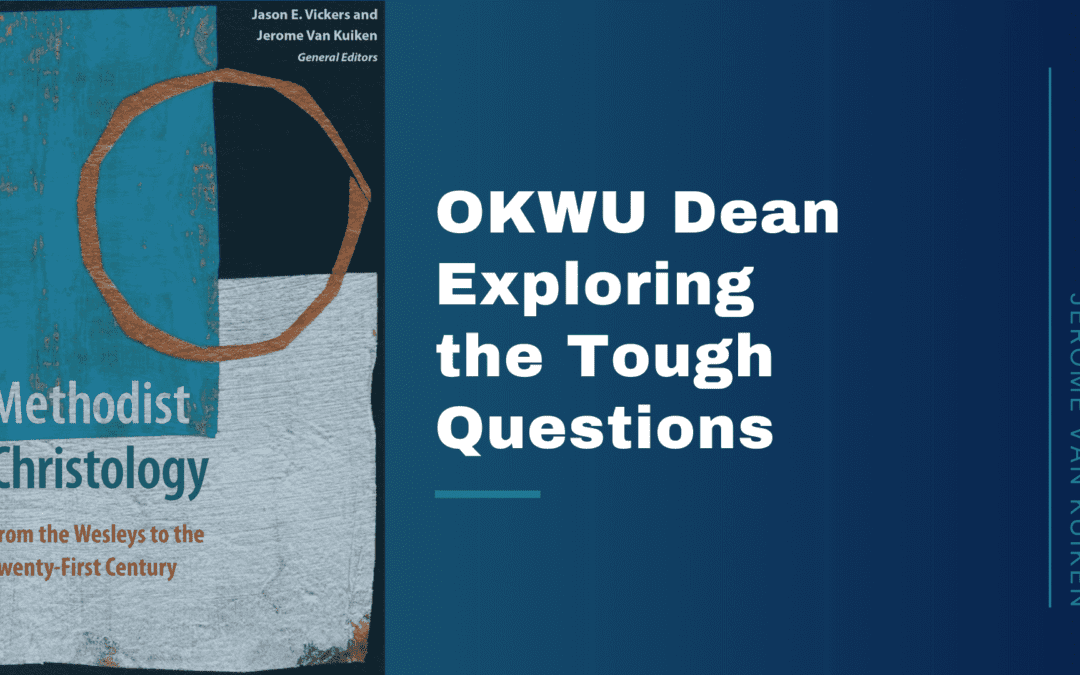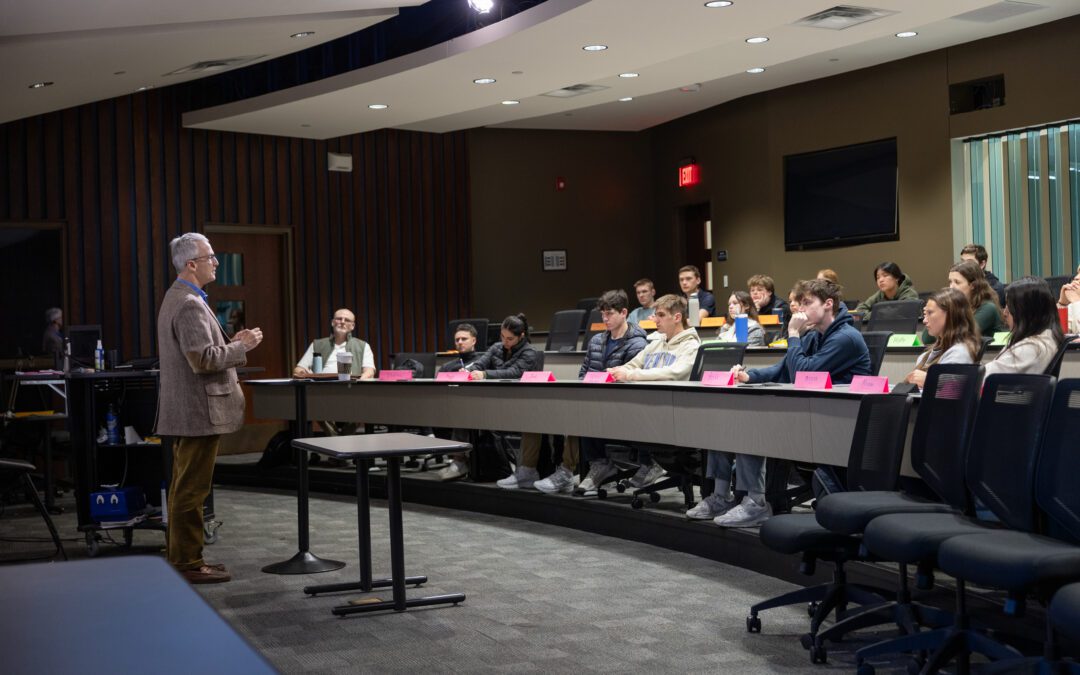Dr. Jerome Van Kuiken, Dean of the School of Ministry and Christian Thought, recently took on a challenge outside of the classroom: co-editing a book.

Dr. Jerome Van Kuiken
The work, released earlier this month, is titled Methodist Christology: From the Wesleys to the Twenty-First Century, and explores the doctrine of Christ within the Wesleyan and Methodist traditions. It’s split into two parts—the first provides a history of Christology in the denomination, dating from Charles and John Wesley to today, while the second outlines the viewpoints that are making a bid to be the future theological model.
Van Kuiken worked on the project alongside Dr. Jason Vickers, a professor at Asbury Theological Seminary who already had editing experience. “Basically, I just apprenticed myself to him and learned how it’s done,” Van Kuiken said.
Both professors had the idea for the book separately, feeling the subject matter was timely and often overlooked within their denominational traditions. “Wesleyanism and the Methodist tradition tended to focus more on practical matters,” Van Kuiken said. “When they do get more into the weeds theologically, they’ll tend to focus more on salvation.”
But the fact that it’s often overlooked makes the subject even more vital. “Before you even get to salvation, you have to have a pretty good idea of who the Savior is,” he said.
One rewarding part of the project for Van Kuiken has been the response from the academic community, which was overwhelmingly positive. “We got some really affirmative responses that felt like this could be a watershed book,” he said. “A real turning point in taking really seriously the doctrine of Christ within the Wesleyan Methodist tradition.”
A different scholar writes each chapter, and the book presents different viewpoints on the main subject. “One thing I tried to do as an editor was to set it up so that the various chapters almost provide critiques of one another,” Van Kuiken said. “It’s important not to just read one chapter and make an assumption about the book as a whole. The chapters are set up so that they kind of converse and even argue with each other.”
“We got some really affirmative responses that felt like this could be a watershed book, a real turning point in taking really seriously the doctrine of Christ within the Wesleyan Methodist tradition.”
While the book is written for an academic audience, the tone is not inaccessible to laypersons interested in the subject. Van Kuiken points specifically to those involved in or interested in the future of the United Methodist denomination—a somewhat tumultuous topic in recent times—or to those simply interested in the church’s theological future.
“The main purpose for this book is to really get the conversation going again on what Wesleyans and Methodists believe, and should believe, about Jesus. And to give some historical background on what they have believed about Christ in the past.”
Methodist Christology: From the Wesleys to the Twenty-First Century is available for purchase on Amazon.



